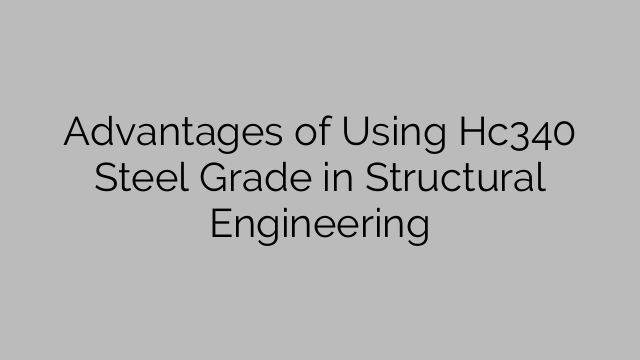Structural engineering is a complex and important field that involves the design and construction of buildings, bridges, and other structures. When it comes to choosing the materials for these structures, it’s crucial to consider the specific requirements and demands of the project. One steel grade that has gained popularity in structural engineering is HC340.
HC340 is a high-strength, low-alloy steel that offers a range of advantages in structural engineering. Here are some of the key benefits of using HC340 in construction projects:
1. High strength: HC340 steel has a minimum yield strength of 340 MPa, which makes it an ideal choice for structural engineering applications. Its high strength allows for the construction of lighter and more efficient structures, reducing material costs and improving overall performance.
2. Good weldability: HC340 steel is known for its excellent weldability, which means it can be easily joined and fabricated into complex shapes and structures. This makes it a versatile and cost-effective option for a wide range of construction projects.
3. Corrosion resistance: HC340 steel has good corrosion resistance, making it suitable for use in a variety of environments, including those with high levels of moisture or exposure to corrosive elements. This makes it a durable and long-lasting option for structural applications.
4. Cost-effective: Due to its high strength and good weldability, HC340 steel can often lead to cost savings in construction projects. The use of HC340 steel can result in reduced material and labor costs, as well as a faster construction process.
5. Environmental benefits: The high strength of HC340 steel can lead to lighter and more efficient structures, which in turn can reduce the overall carbon footprint of a construction project. Additionally, the recyclability of steel means that HC340 is a sustainable and environmentally friendly choice for structural engineering applications.
6. Versatility: HC340 steel can be used in a wide range of structural engineering applications, from buildings and bridges to heavy machinery and equipment. Its versatility and high performance make it an attractive option for a variety of construction projects.
In conclusion, HC340 steel offers a range of advantages in structural engineering, including high strength, good weldability, corrosion resistance, cost-effectiveness, environmental benefits, and versatility. As a result, it is becoming an increasingly popular choice for construction projects where high performance and reliability are essential. By using HC340 steel, engineers and designers can create innovative and sustainable structures that meet the demands of the modern construction industry.

